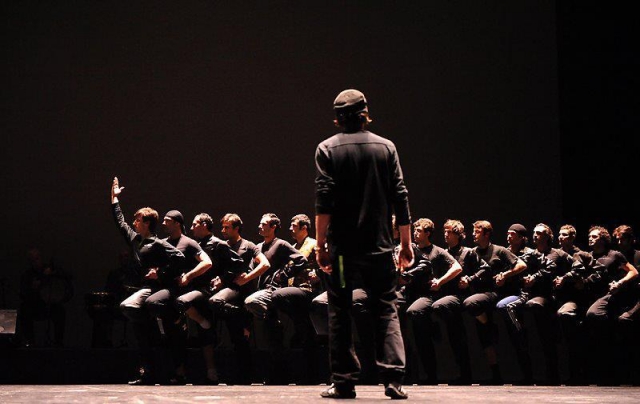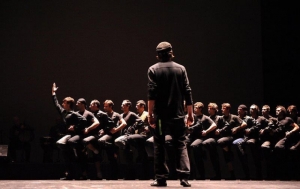Georgian Sukhishvilebi Rejects Invite to Perform in Occupied Crimea
TBILISI - Georgia’s National Ballet Company Sukhishvilebi has refused an invite to perform in Crimea, Ukraine's Black Sea peninsula that was invaded and annexed by Russia in 2014.
According to a statement released on Sukhishvilebi’s official Facebook page, they flatly rejected invitations to perform in the Crimean cities Sevastopol.
“We performed in Crimea every year from 2007 to 2014, when Russia annexed the peninsula. This time, however, we replied to their offer with a simple note saying that we refuse to perform in Russia and especially in regions invaded and occupied by Russia, Glory to Ukraine! Glory to the Heroes!," the statement says, quoting a Ukrainian patriotic greeting that became the slogan of the 2013-14 Euromaidan Revolution and the ongoing War in the Donbass.
Russia invaded Crimea in late February 2014 Crimea shortly after Ukraine's pro-Russian president Viktor Yanukovych was ousted by the Euromaidan Revolution in Kyiv.
Moscow annexed the peninsula less than a month later but has been unable to boost the region’s crippled economy and growing humanitarian crisis.
Crimea has essentially been cut-off by the international community as every nation on Earth, aside from Russia, recognizes Crimea as a part of Ukraine.
Sukhishvilebi’s response to the Russian invitation comes as no surprise as other foreign artists have also refused to cooperate with the occupation authorities or violate the international sanctions.
Russia and its separatist proxies have occupied just over 20 per cent of Georgia’s territory since 1992.
The Kremlin recognized Georgia’s South Ossetia and Abkhazia regions as independent states in 2008, leading to a freeze in formal diplomatic relations.
International law and the United Nations continue to state that the regions remain parts of Georgia.
Russia continues to violate a 2008 ceasefire agreement by maintaining a massive military presence in both Abkhazia and South Ossetia by basing thousands of occupation forces in the two regions.
By Tamar Svanidze
Edited by Nicholas Waller
Photo: Sukhishvilebi












